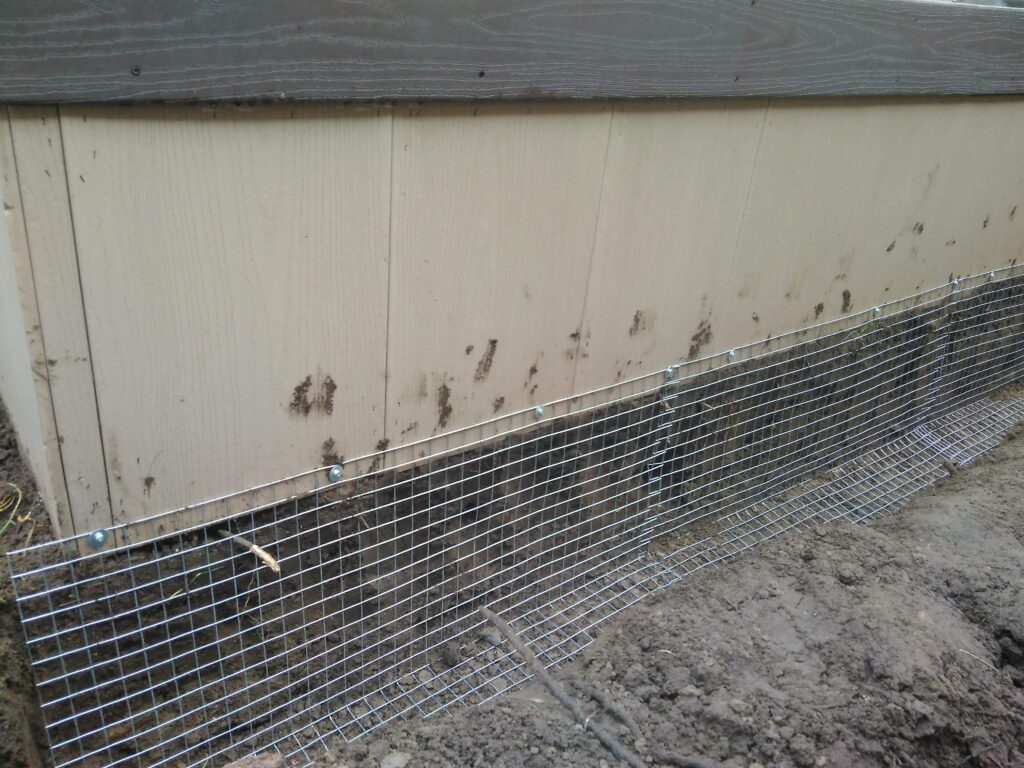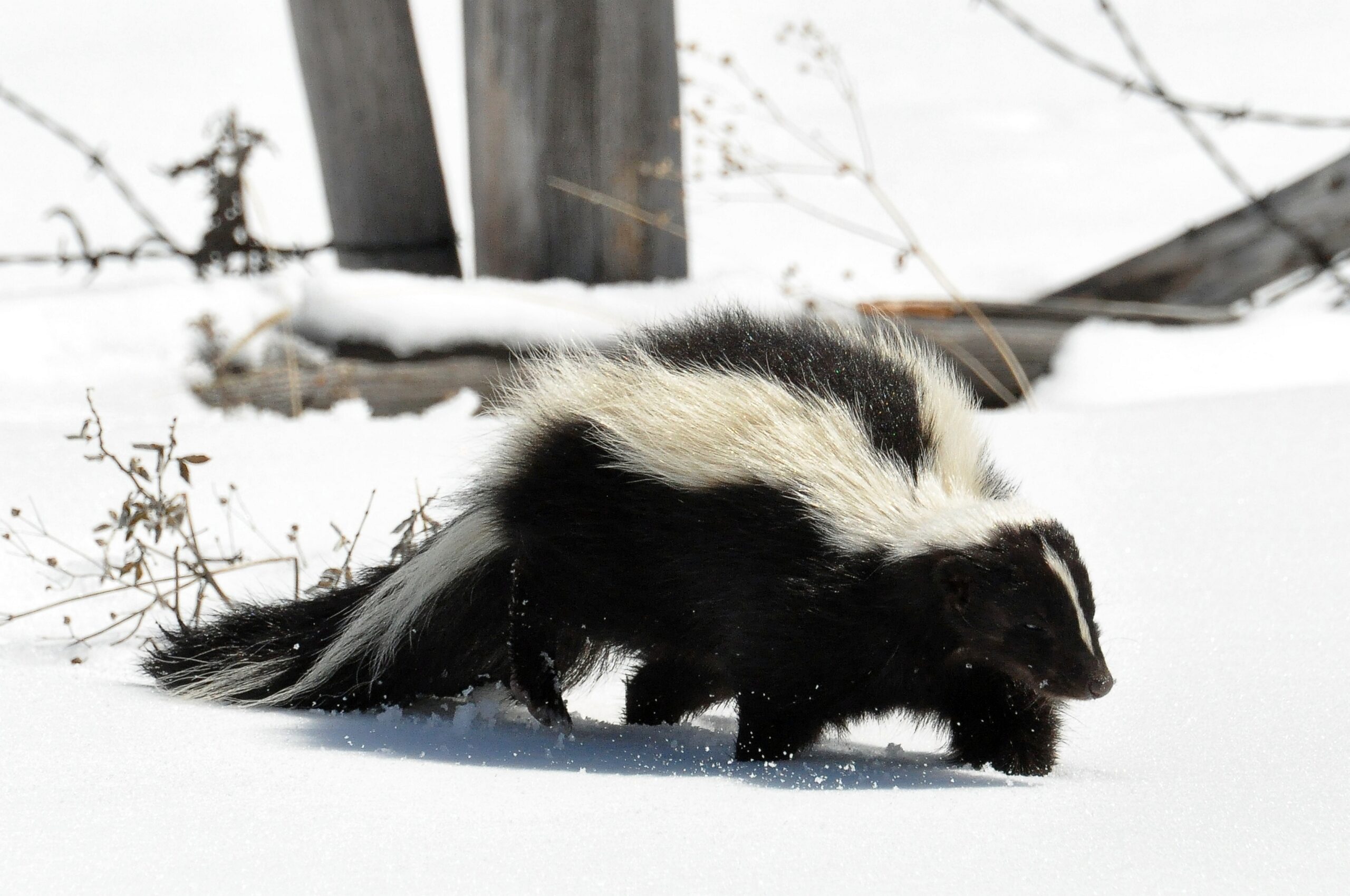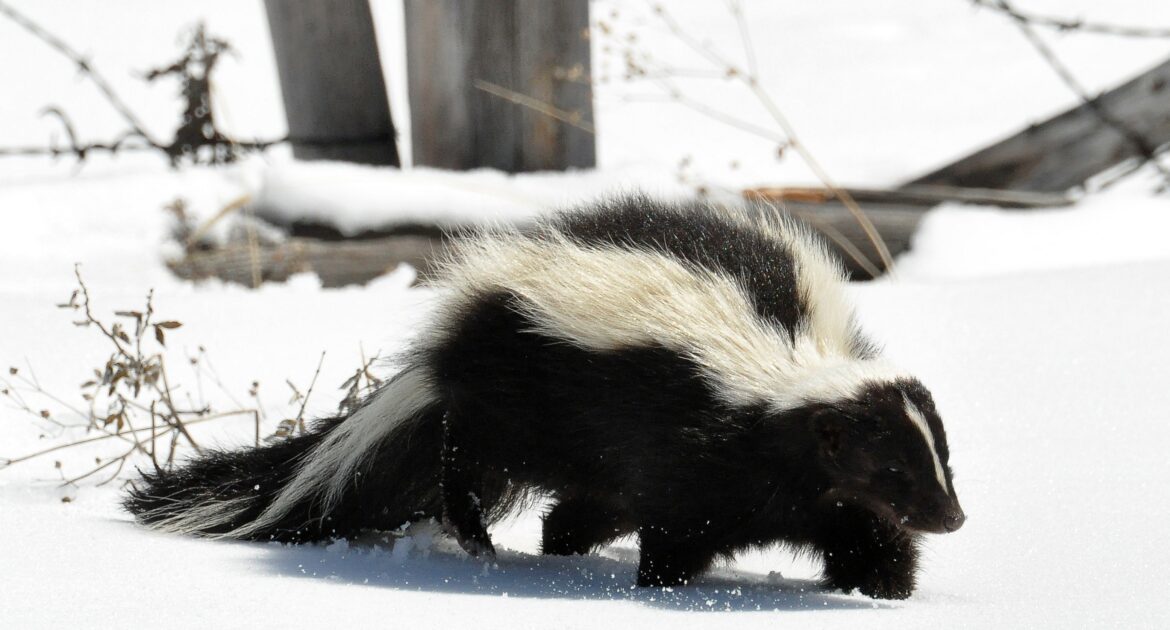Skunk encounters are unpleasant for everyone, so you probably go out of your way to avoid the creatures if you see them on your property. It’s no secret that skunk encounters are more common during warm weather in the spring and summer, but you may not know how often you may come in contact with a skunk during the winter months. Here’s what you need to know about skunks during the winter so you can avoid an unpleasant encounter during cold weather.
What Do Skunks Eat in Winter?
Skunks eat grubs and other insects during warm weather, but when it is cold, it is harder to find food to eat. Skunks, like many other creatures, start looking for easy sources of food such as unsecured garbage and pet food that is left out all day. If you offer skunks an easy source of food on your property, they will not likely leave during the winter because it is easy for them to get the sustenance they need to live.
Do Skunks Hibernate?
Skunks are less active during the winter months, but they do not hibernate, so it is possible to see one of the animals on your property when snow is on the ground. Skunks spend most of the winter curled up in their dens. They do not, however, go into the deep sleep of hibernation, so they emerge whenever they need food or water. Any place on your property that is warm and provides decent shelter from the elements makes a good den for a skunk. Check under wood piles, in outbuildings and in the basement to make sure skunks are not spending the winter months there.
When Is Mating Season?
Mating season for skunks is February and March, so you may see the creatures more frequently towards the end of the winter. Skunks give birth through April and May. Most litters average between four and seven kits apiece, and the babies often stay with their mothers until they are a year old.
Is Your Home at Risk of a Skunk Infestation?
Your home is at risk of a skunk infestation if it is a prime environment for the creatures. Make sure you do not offer skunks easy places to shelter during the winter months and secure any food so they do not have easy access.
When Should You Call a Professional for Skunk Removal?
Skunks don’t pose a direct threat to humans because they are not usually aggressive and they don’t carry contagious diseases as rodents do. However, skunks have the ability to spray an offensive odour on potential attackers. While you may not mean skunks any harm, they will spray if they feel threatened. It takes several days and a lot of scrubbing with various home remedies to get rid of the odour left behind by a skunk spray, so it’s best to avoid the creatures altogether. Making your property a less appealing environment for skunks is a good way to deter them from your home, but if you see that a skunk has taken up residence in your yard, it’s best to call Skedaddle Humane Wildlife Control for help immediately.
As wildlife experts, we have plenty of experience with skunk removal. With our tools and experience, we can take care of your skunk infestation without harming the creatures so you can avoid any run-ins with the animals and be confident that they are not harmed during the removal process. The skunks will relocate themselves to one of their other den sites in the area, and your structure will be securely sealed so that they are not able to return.

Make an Appointment Today
Removing any skunks on your property is the best way to avoid unpleasant encounters with them. When you need wildlife control in Kitchener, trust the experts at Skedaddle Humane Wildlife Control to take care of the issue quickly and efficiently. Contact us today to schedule an appointment for skunk removal.




